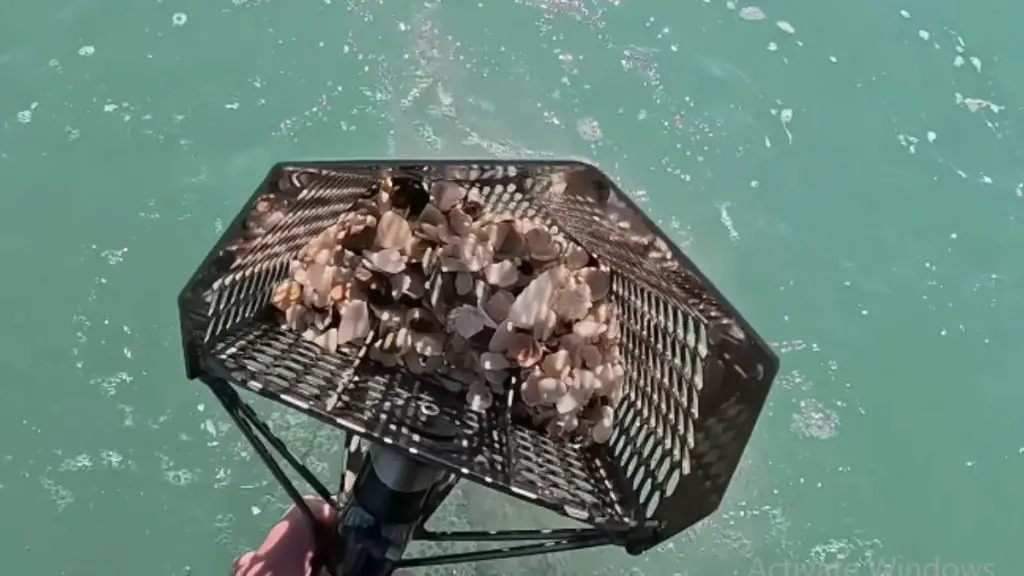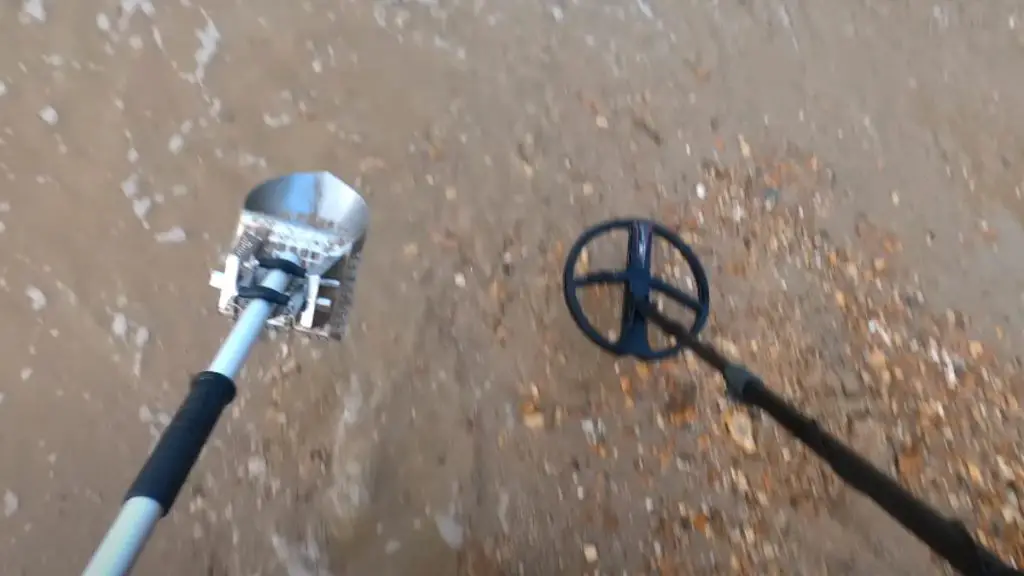Metal detecting in West Virginia unlocks the door to a trove of hidden treasures, with the state’s rich history offering a promising adventure for enthusiasts.
West Virginia has been a witness to key events in American history, including Civil War battles and the coal mining industry’s boom.
In fact, the West Virginia State Parks alone cover 80,000 acres, each acre holding the potential of unearthing the past.
So, in this article we’ll discover the best places, best clubs for metal detection in West Virginia and much more.
Let’s dive in!
Metal Detecting In West Virginia

Metal detecting in West Virginia can be a thrilling experience for treasure seekers.
West Virginia is known for its rich history, particularly its role in the Civil War, which makes it a great place for those looking to find historical artifacts.
The state’s history goes back to the days when Native Americans roamed the land, and it was an important frontier during colonial times.
The population of West Virginia is around 1.8 million people. With fewer people and a lot of untouched land, there’s a good chance of finding something special with your metal detector.
It is best for metal detecting because there are many areas that haven’t been searched yet.
Also, the forests and mountains hide relics from the past that are just waiting to be discovered.
Some of the best places to go metal detecting are old battlefields, abandoned homesites, and around old coal mining towns.
However, always make sure to get permission if you’re searching on private land, and be aware of state laws when detecting on public lands.
Is it legal to metal detect in West Virginia?
Yes, it is generally legal to use a metal detector in West Virginia, but there are essential details and rules you must follow.
Some public lands may allow metal detecting with specific rules in place. It’s essential to check with the governing agency of the site before you begin.
To metal detect on private property, you need the owner’s permission. Searching without consent could be considered trespassing.
Metal detecting is not allowed on historical sites protected by law.
You may use metal detectors in specific areas of national forests, but any historical or archaeological finds must be left in place and reported.
In most state parks, you may need a permit to metal detect, and activities could be restricted to certain areas or times.
Always remember to fill any holes you dig and dispose of any trash you may find.
Where can you metal detect in West Virginia?
Here’s a detailed list of places for metal detection in West Virginia:
1. Tygart Valley River, Randolph County
This river extends about 135 miles and is known for its historical significance dating back to 1753 when European settlers first arrived. It’s a promising site for finding relics and artifacts from the early settlement era.
2. North Bend Rail Trail
Spanning Doddridge, Harrison, Ritchie, and Wood Counties, this 72-mile abandoned railroad offers a unique glimpse into the past and a chance to uncover items left behind from its operational days.
3. Potomac River, Ohio County
With its banks touching both West Virginia and Maryland, the Potomac River is a historic waterway that may yield finds from various periods, including Native American artifacts and colonial-era relics.
4. Adena Burial Mounds, Marshall County
These ancient burial sites offer a connection to the Adena people. While treasure hunting here, it’s crucial to respect the area and seek permission, as these are sensitive archaeological sites.
5. Kaymoor, Fayette County
This ghost town, once a bustling mining site, is now a treasure trove for detecting enthusiasts looking for artifacts from West Virginia’s coal mining era.
6. Harpers Ferry, Jefferson County
A town of significant historical importance, especially during the Civil War, Harpers Ferry provides a rich ground for metal detecting, with potential finds from various periods of American history.
7. Silver Run Tunnel, Ritchie County
Known for its ghost stories, this tunnel and the surrounding area could be an interesting place for those looking to uncover items from the railroad era.
8. Sewell, Fayette County
An abandoned town near Babcock State Park, Sewell offers a glimpse into the past and a chance to find relics from its days as a coal mining community.
9. Thurmond, Fayette County
Though considered a ghost town, Thurmond still has a few residents and remnants from its past, making it a fascinating site for metal detecting.
10. Jennings Randolph Lake, Mineral County
This reservoir area could hold items washed down from the Potomac River, offering a variety of potential finds.
11. Nuttalburg, Fayette County
As one of the most intact coal mining complexes in the state, Nuttalburg provides an opportunity to discover coal mining artifacts.
12. Big Sandy Creek, Preston County
Known for whitewater kayaking, the creek’s banks might reveal items lost over time, from Native American artifacts to modern-day treasures.
13. Lake Shawnee Amusement Park, Mercer County
An abandoned amusement park with a tragic history, it’s a site where one might find items lost by visitors over the years.
14. Winona, Fayette County
This unincorporated community has a rich history, including its establishment by African-American miners, offering a unique opportunity for finding educational and historical artifacts.
15. Glen Jean School, Fayette County
The ruins of this abandoned school might hold educational relics or items related to its use over the years.
Is there any buried treasure in West Virginia?
There are many legends about buried treasure in West Virginia, but no substantial evidence proves their existence.
One of the most famous tales is of John Swift’s lost silver mine, which is said to be located in the Appalachian Mountains of eastern Kentucky and West Virginia.
However, it remains a myth as no one has yet uncovered the mine.
Furthermore, the state’s history with coal mining might confuse some into thinking treasure could be buried underground.
While treasure hunting can be a fun and adventurous hobby, it’s important to remember that it’s largely based on myth and folklore.
Best Metal detecting clubs in West Virginia
West Virginia Historical Preservation Society – Capon Bridge
Status: May not be active any longer.
Location: Capon Bridge, West Virginia.
This society is mentioned as a point of interest for those involved in historical preservation, which might include metal detecting activities focused on historical artifacts.
However, specific details such as contact information, email, or a website were not provided, indicating that the club may not be active or easily reachable for new members or inquiries.
You can also find our guide on metal detection In Virginia, In Tennessee, metal detection Kentucky, and In South Carolina; for successful hunt.
West Virginia Parks List for Metal Detection
Here is the list of parks in West Virginia for metal detection:
| Park/Area | Metal Detecting Status |
| State Parks and Forests | Not allowed (Regulations prohibit the disturbance or removal of any item found) |
| Wildlife Management Areas (WMA) | Generally not allowed (Specific regulations may apply, and it’s advised to check with the WV Division of Natural Resources) |
| Developed Areas (e.g., Beaches at Lakes, Campgrounds) | May be allowed (Verification with local authorities or park management is recommended) |
| City Parks | Varies by city (Some city ordinances may allow detecting but prohibit removal of objects; it’s essential to check local city ordinances) |

Frederick Perez is the founder of Scrape Dude. He loves exploring and finding hidden treasures in unexpected places. Frederick has been dumpster diving and gold panning for years, turning his hobby into our website to share his adventures. He’s known for his friendly advice and exciting stories, inspiring others to discover the joy in these unique hobbies. His expertise makes Scrape Dude a trusted and fun place to learn and explore.


